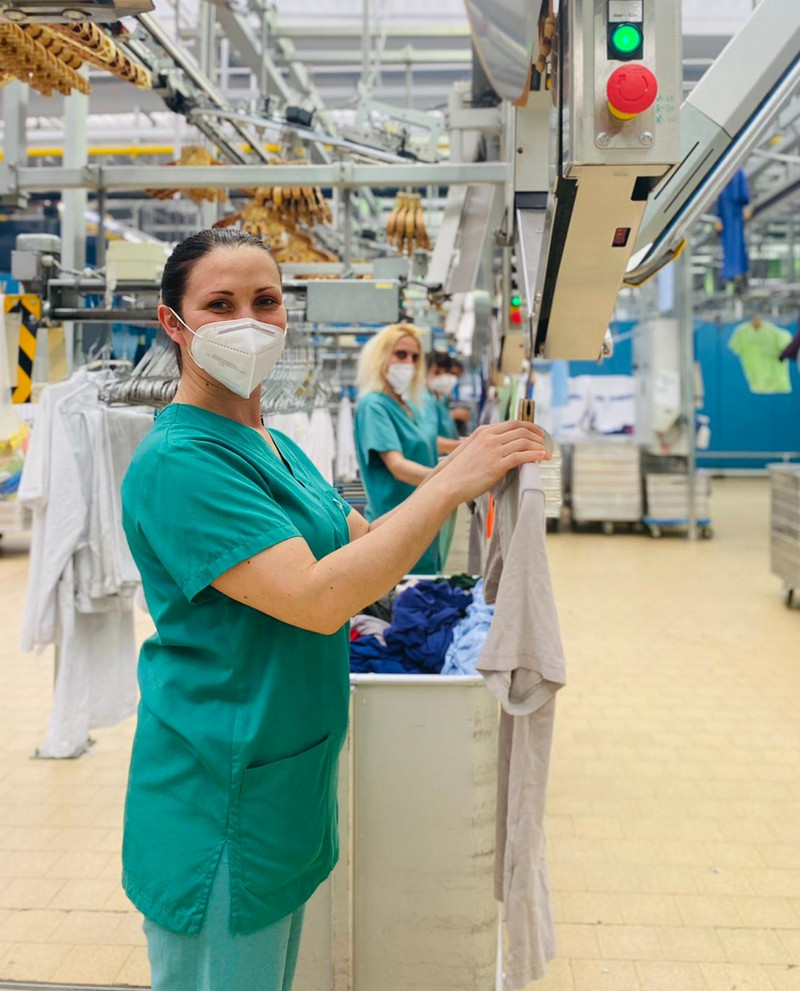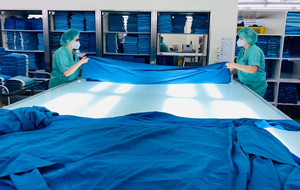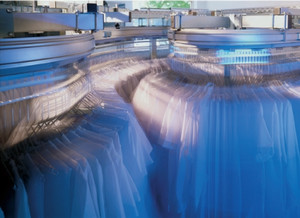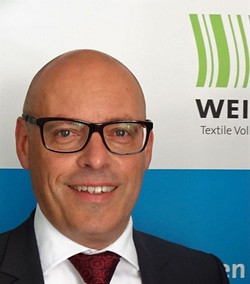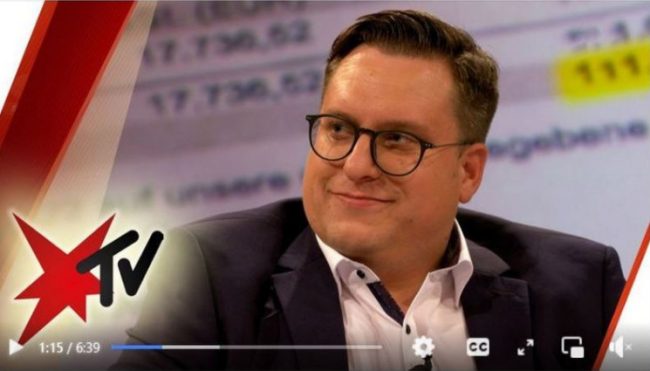“Service providers can no longer cover their costs”
The new version of the Energy Industry Act (EnWG) privileges gas purchases for clinics and retirement homes. The crux: The current legal situation does not include external service providers who cooperate with these houses. Industry expert Albrecht Ball, Managing Director of Weiss Tex GmbH, explains where the Federal Network Agency must act urgently in order to guarantee the supply in the event of a gas shortage.
What about the textile care industry in Europe? Q&A with Albrecht Ball
Mr. Ball, the increase in energy prices is currently dominating the headlines. Can you already foresee to what extent the dry cleaning industry will be affected?
The data from the Federal Statistical Office on the development of energy prices speaks for itself: Even before the Ukraine war, significant cost increases were recorded in connection with the energy transition and other factors. The war in Ukraine aggravated this situation. The textile cleaning industry is directly affected by this. Depending on the energy technology, the energy costs of the companies amount to an average of approx. 10 percent of the total costs.
Fortunately, at Weiss Tex GmbH we are consumption-optimized and up-to-date with our energy-efficient systems. Nevertheless, we are of course also hard hit by the price situation. Consumption is one side of the coin, the other is determined by price. In addition, companies in the laundry industry have generally agreed fixed-price contracts with their energy suppliers, which are usually renewed 6 to 12 months before they expire.
However, energy prices had already risen in mid-2021, which is why the players initially did not stock up in the hope that prices would fall. Instead of falling, energy prices skyrocketed after the outbreak of war in Ukraine, and the rise has still not stopped. As a result, many companies were hit by extremely high energy prices for a very short time. The Russian shortage of natural gas supply has caused prices in this country to rise exorbitantly. This is also reflected in the electricity pricing. The price curve continues to point upwards.
The abolition of the EEG surcharge on July 1, 2022 will dampen this for electricity, but it is far from being able to compensate for the sharp increase in electricity costs. In order to secure energy trading, gas prices are to be further burdened with a new levy in the near future, which will also cause a price surge.
“Textile cleaners are 100 percent dependent on gas”
– Albrecht Ball, Managing Director of Weiss Tex GmbH
Weiss Tex GmbH Offerings |
The German gas storage facilities are said to be mostly full at the moment. Is this a problem for you?
Well yes. The largest gas storage facility should currently have a storage level of 80 percent. Of course, that also worries us. Many companies in the dry cleaning industry are 100 percent dependent on gas. All systems that were still running on oil ten years ago have been converted to gas-powered variants, usually with direct combustion technology. This was firstly the cheaper and secondly the cleaner source of energy. I don’t see any possibility of getting rid of natural gas in the short or medium term. What should the alternative be? There is no alternative in the medium term.
Take a pellet steam boiler for example, if you were to equip all laundries with pellet boilers, you would soon be reporting a pellet shortage there. To come back to your question: Even if the requirements of the ministerial decree to increase storage requirements are met and the storage facilities are full, it will be a very tight undertaking to supply all consumers in the long term, ie private households, industry and public life. This concern bothers me a lot. Especially since the major German electricity operators are currently still producing electricity with natural gas, which of course ultimately also contributes to the shortage of natural gas.
The same could also be assumed in companies with operated combined heat and power plants. However, these systems are so-called high-efficiency systems in conjunction with the steam generation required in laundries and an optimized heat distribution. In other words, if these companies were obliged to switch off, the not inconsiderable amount of waste heat used from these plants would then have to be balanced with primary gas energy, i.e. additional consumption at the steam boiler.
|
“Service providers can no longer cover their costs”
– Albrecht Ball, Managing Director of Weiss Tex GmbH
To what extent are the cost increases that the dry cleaning industry is facing a problem for German hospitals and care facilities?
The hospitals and care facilities will be affected by the price increases “step by step”, so to speak. Due to the term of the supply contracts, the contractual situation can sometimes not be adjusted as quickly as necessary. The textile service companies are then threatened that they will no longer work to cover their costs. That is not and cannot be the meaning and purpose in a partnership relationship, and it is also not wanted.
The facilities and the laundries have committed themselves to a common goal: the safe, hygienic processing of the textiles to protect the patients and the facility staff in the quantities required. I am therefore really pleased that there are some hospitals and care facilities that see things the same way and, in some cases, also participate in the cost increases on a voluntary basis in the case of fixed price agreements.
In the end, there aren’t any great alternatives, because all laundries have the same problem. It makes no sense to run an existing textile service provider who does a good job “in the red” so that they are either forced to cancel the contract or end up floundering themselves.
“The respective contractual situation is decisive for the implementation of a price increase” You’ve already touched on it. But I would like to ask again: Can the textile cleaners pass the increase in costs on to their customers?
The lawyers describe the principle of compliance with the principle of ” pacta sunt servanda “. This means that the respective contractual situation is decisive for the implementation of a price increase.
According to legal experts, paragraph 313, paragraph 1 of the German Civil Code makes it possible under certain circumstances to have a contract adjustment (including price adjustment) if the provision of services is demonstrably no longer reasonable due to unforeseeable events. If an adjustment option is not possible, the disadvantaged party can withdraw from the contract.
As a rule, the textile service providers have negotiated individual contracts with the healthcare facilities, which often also contain adjustment clauses. However, these are usually capped at a certain percentage or only for certain types of costs. And this is almost always below the rate of increase recorded in the energy price sector.
In healthcare facilities with public sector involvement, contracts usually have to be awarded via tenders. Up until this crisis, there were often regulations there that generally excluded price adjustments for a certain period of time. There will have to be a rethink here in the future. Such regulations can no longer be accepted in such an unpredictable time. Otherwise, companies have to reckon with not receiving any offers in the end.
The problem of the current contracts cannot be solved easily. The companies are partly dependent on the customer having an understanding of fixed contracts. It’s not about earning a lot of money here, it’s about maintaining standards and not maneuvering into business failure.
“Neither a hospital nor a nursing home can be operated without a supply of textiles”
What do you think of the information policy of the Federal Network Agency?
To put it plainly: the Federal Network Agency does not act at all in the direction of small and medium-sized companies, which include the dry cleaning industry . Personally, I recently had correspondence in connection with which it was communicated that according to the extended definition of the EnWG amendment, we are not counted among the group of protected customers and accordingly no privileges can be granted to us.
Something else applies to laundries, which are part of the organization of health care facilities, i.e. their own laundries in hospitals, old people’s and nursing homes. Textile suppliers working externally urgently need a regulation that gives them the same priorities.Without the supply of textiles, neither a hospital nor a nursing home can continue to operate. Just imagine that textiles would no longer be delivered to a hospital: the patients would not be given patient clothing, the beds could not be made. The patients would lie on bare mattresses, with no sheets, no pillows. Or think of the textile medical product processors, to which we also belong, who deliver finished surgical sets to hospitals and operating theaters… Operations would inevitably have to be cancelled.
It is obvious: If the laundries that work for the healthcare sector are not given priority in a gas shortage, the supply situation in the hospitals and care facilities is directly at stake.
“We are systemically important”
How important is the systemic status for laundries?
The dry cleaning companies were already classified as systemically important during the corona pandemic . It quickly became clear that if laundries were not assigned this status, then the healthcare facilities would no longer be able to be supplied directly. Those responsible at the Federal Network Agency have apparently not yet noticed this scenario. I very much hope that this will change. When I think of the letter from the Federal Network Agency, the prospect is bleak: the external laundries are not among the privileged.
If the gas tap were to be turned off for the healthcare sector in the textile cleaning industry, the consequences would be fatal! Politicians and the representatives of the Federal Network Agency must work to ensure that the amendment to the law on electricity and gas supply is adjusted again. We are systemically important, so this also applies to our gas supply
When is the point reached where the state has to intervene and what concrete measures are conceivable?
The state or the Federal Network Agency should regulate more clearly who actually needs to be supplied with gas and who doesn’t. In my opinion, this process is not yet complete. It has to be readjusted very promptly as to what is absolutely necessary in terms of services of general interest and what is not. It is perfectly clear to me that the production of decorative items is certainly less important than the preparation of surgical sets.
“Switching to alternative forms of energy must be made easier”
At the same time, the ecological restructuring of power generation is taking place. What does this mean for the dry cleaning industry?
The textile cleaning industry has been investing in the energy transition and ecological change for over a decade. The modern operations are all in good condition. The waste heat from the machines and the water is used and excess electricity is fed back. Wastewater is treated in several stages and used several times. 10 years ago, the energy consumption per kilo of laundry was still around 1.5 KWh, modern companies are now around 1 KWh and sometimes less.
The laundry industry has spent a lot of money here out of ecological conviction. Despite ongoing promises by politicians to reduce bureaucracy in order to simplify projects, the opposite is often the case. The transition to alternative forms of energy must be made easier. An essential point here is that PV systems and CHP systems >100 KWp, which are installed with the aim of generating their own electricity and only feed a very small amount of electricity into the public grid, are exempt from the direct marketing obligation.
“Can’t go back to the old energy policy”
What is your future prognosis?
I’m a positive thinker. There must be peace in Ukraine, and soon. And this is secondary to energy prices, it is primarily about human lives. However, I fear that there will be no “back to business” after the war. Assuming that Russia wants to supply gas again in the same quantities as before, we could not go back to the old energy policy and continue this one-sided dependency. The networks to and from Russia that have been set up so far would only be needed in a much smaller capacity. As an alternative, we are already buying large quantities of liquid gas.
Even before the energy crisis, liquid gas was more expensive than natural gas from the pipeline. I reckon that the shortage on the gas market will remain for quite a while. In my estimation, the price level will initially continue to rise and then fall again somewhat as the market becomes more saturated. The same applies to electricity.
However, in the foreseeable future we will by no means return to the level of energy prices that we were familiar with in recent years and before the crises. The politically decided restructuring of the energy infrastructure must now be properly managed. The omissions of the last ten years must be dealt with in a hurry.
(Courtesy: DTV/Michael Schanz)
